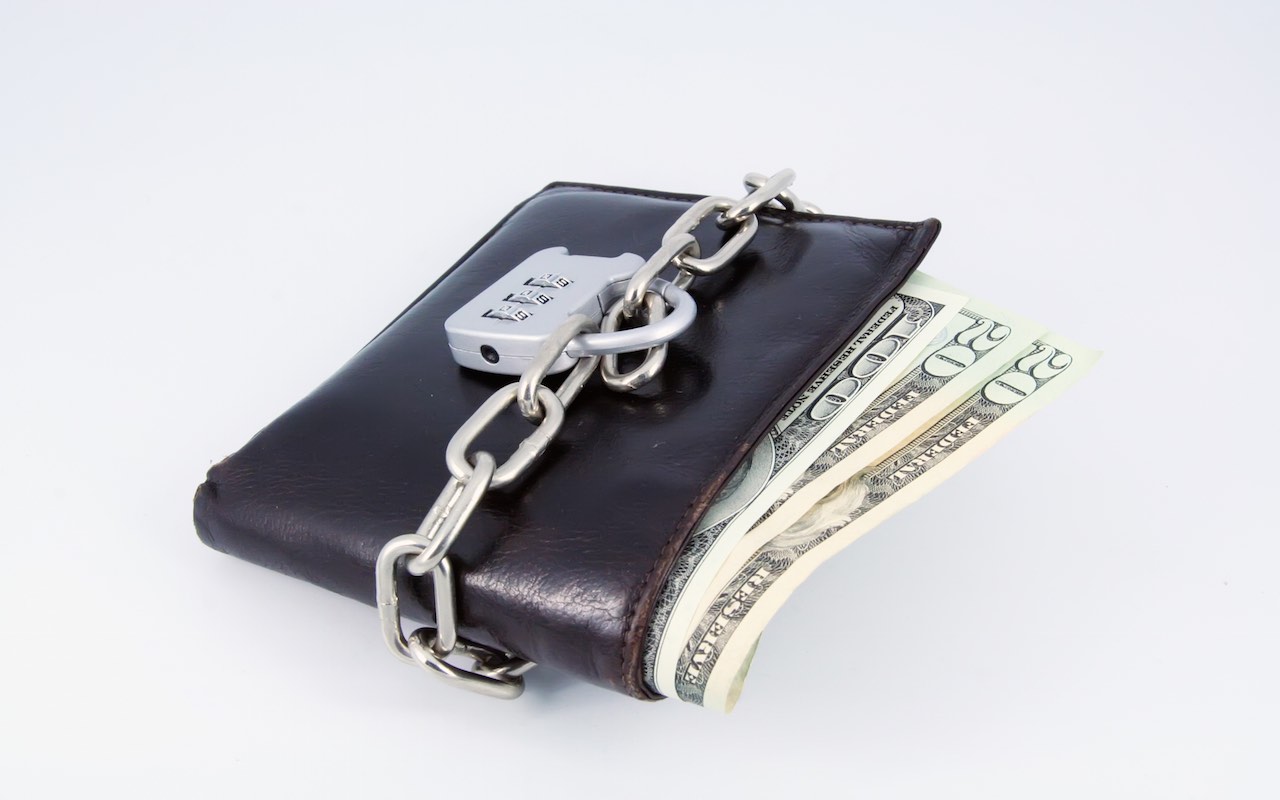7 Worst Mistakes Investors Will Make in This Market
Is this the end of a seven-year bull market or the beginning of a prolonged bear market, or something in between?


Profit and prosper with the best of Kiplinger's advice on investing, taxes, retirement, personal finance and much more. Delivered daily. Enter your email in the box and click Sign Me Up.
You are now subscribed
Your newsletter sign-up was successful
Want to add more newsletters?

Delivered daily
Kiplinger Today
Profit and prosper with the best of Kiplinger's advice on investing, taxes, retirement, personal finance and much more delivered daily. Smart money moves start here.

Sent five days a week
Kiplinger A Step Ahead
Get practical help to make better financial decisions in your everyday life, from spending to savings on top deals.

Delivered daily
Kiplinger Closing Bell
Get today's biggest financial and investing headlines delivered to your inbox every day the U.S. stock market is open.

Sent twice a week
Kiplinger Adviser Intel
Financial pros across the country share best practices and fresh tactics to preserve and grow your wealth.

Delivered weekly
Kiplinger Tax Tips
Trim your federal and state tax bills with practical tax-planning and tax-cutting strategies.

Sent twice a week
Kiplinger Retirement Tips
Your twice-a-week guide to planning and enjoying a financially secure and richly rewarding retirement

Sent bimonthly.
Kiplinger Adviser Angle
Insights for advisers, wealth managers and other financial professionals.

Sent twice a week
Kiplinger Investing Weekly
Your twice-a-week roundup of promising stocks, funds, companies and industries you should consider, ones you should avoid, and why.

Sent weekly for six weeks
Kiplinger Invest for Retirement
Your step-by-step six-part series on how to invest for retirement, from devising a successful strategy to exactly which investments to choose.
Is this the end of a seven-year bull market or the beginning of a prolonged bear market, or something in between? Truth is, nobody knows for sure. The vast opportunities for creating wealth by investing in equities come with plenty of risks. So take a deep breath and remember—the stock market has yielded an average 8%-10% return annually over the last 114 years. In 2013, the Dow Jones industrial average gained almost 30%. Last year, it lost 2.2%. This year has begun with frightening drops of 5%-15% in markets globally.
It’s easy for investors to compound the pain and losses in times like this. Here are the seven biggest mistakes you can make. Avoid these costly missteps and chances are you can profit handsomely for years to come, even if you are retired or approaching retirement.

You Panic-Sell
Wall Street can be a scary place when the bear is loose, even for the smartest of investors. This is not new. Three centuries ago, as scientist Isaac Newton lost a fortune in the South Sea Company stock collapse, he lamented, "I can calculate the movement of the stars, but not the madness of men." When $1.04 trillion disappears from the S&P 500 in 12 days, as happened in early January, fools rush out of the market, sell off their depressed assets and lose their shirts, just like Newton.
Emotion is your worst enemy. Remember, all bull and bear markets have one thing in common—they always come to an end. Some recent history: The Dow lost a frightening 53% of its value in the 2008-2009 meltdown. But within a four-year period, the Dow regained it all, then rose an additional 28%, from a low of 6,507 to a new record high of 18,200 on February 24, 2015. Now the Dow is back down to around 16,000. But patient investors were still big winners in the run-up.
So keep your eye on your long-term plan. Now might be a good time to reexamine why you are investing at all, says John Riley, chief investment strategist for Cornerstone Investment Services. Watching and waiting for selling opportunities may get you out of positions at a better price. But “if you aren’t willing to own a stock for 10 years, don’t even think of owning it for 10 minutes,” as Warren Buffett once put it.

You Quit Buying
Buying stocks in bear markets may be the hardest thing for most investors to do because it is so counterintuitive. But if you have cash, you can score some real bargains that others who are fully invested cannot. Snapping up quality stocks you know are being dragged down in the froth of a downturn can unlock future wealth. Make a list of investments that you’d like to own and the prices you’re willing to pay, says Bryan Koslow, a registered investment adviser for New Jersey-based Clarus Financial. When the market sells off and a stock on your list falls to the right price, bingo. “Your list will help you stay disciplined,” says Koslow.
For more, read 5 Tactics That Help Patient Investors Prosper.

You Get Sucked Into the 24-Hour Market News Cycle
The straightest advice I have ever seen on this topic comes from Barry Ritholtz, chief investment officer of Ritholtz Wealth Management. A frequent commentator himself, he knows a thing or two about the talking heads on business cable TV and radio. “I can tell you from my personal experience that most of them haven’t the slightest idea what they are talking about. The general advice they give is for entertainment purposes only,” Ritholtz wrote in a recent Washington Post column. Market experts know nothing about you, your portfolio or your risk tolerance, Ritholtz adds. “Their forecasts amount to nothing more than marketing. Treat them that way.”
Kiplinger’s advice: Work with a trusted financial adviser with a fiduciary responsibility to make sure your long-term goals won’t be derailed. For more, read How to Pick a Financial Planner.

You Have Too Much of Your Portfolio in One Asset
There's no such thing as the perfect investment. Stocks carry risks. Funds that bundle stocks can lessen the risk, cushioning sharp downturns but muting spikes as well. And bonds can offset stock losses in the short term, but over long periods, bond returns trail the returns of the stock market.
Having the right mix is especially important to retirees, who should have an investment horizon long enough to weather this storm. Shifting too much money to bonds or under the mattress is no strategy. You should stay diversified, no matter how scary the market gets. T. Rowe Price recommends new retirees keep 40%-60% of their assets in stocks because they hold up to inflation better than bonds and cash. Even 90-year-olds should keep at least 20% of their assets in stocks.
For more, see How Retirees Should React to the Stock Market Selloff.

You Fail to Rebalance Your Portfolio
Every investor is subject to the whims of the market. Here's one way to profit from the inevitable ups and downs. Let's say your portfolio is made up of mutual funds. At the end of each year—better yet, every quarter—consider how much you have in each fund. Then target new money to the funds that have done poorly. Many retirement plans offer automatic rebalancing, so you don’t have to worry about it. Rebalancing keeps your portfolio diversified by preventing your wealth from becoming concentrated in a small number of investments.
This disciplined approach to investing helps ensure that you're buying lower and selling higher, which certainly beats the buy-high-sell-low trap that snares many investors. "Rebalancing takes guts—it's hard to reward losers—but it works," says Kiplinger.com columnist Steven Goldberg.

You Only Live Once. Time To Splurge!
Not so fast. There are those who see a prolonged bear market ahead. There are those who see a bull market for the next 15-20 years. Let’s focus on the rest of the year for a moment. Until the uncertainty clears about an economic slowdown in China, the fallout from a plunge in energy prices, the interest rate outlook and the U.S. presidential election, it’s a safe bet that 2016 is likely to be a volatile year. It might be a good time to scale back on withdrawals from your portfolio to meet living expenses, especially if you’re taking out more than 4%-5% annually, says columnist Anne Smith of Kiplinger.
Here’s how to make your retirement savings last a lifetime.

You Stop Contributions Into Your Retirement or College Savings Plans, Fearing You’ll Lose Money
Yikes. There’s no better time to start investing in your future than right now. It makes no difference if markets are rising or in freefall. Socking away 10% or 15% of what you earn in a company 401(k) plan or an IRA allows your money to grow free of tax and compound more quickly. Same for a 529 college savings plan for your children or grandchildren. Rachel Sheedy, managing editor of Kiplinger’s Retirement Report, offers this example of the magic of compounding when applied to long-term savings. If, starting at age 22, you stash $2,500 every year in a Roth IRA earning an 8% annual return, at age 62 you would have $699,453. If you wait until 32 and save twice as much every year, at age 62 you would have $611,729—about $88,000 less. In other words, the sooner you start saving, the better.
Here’s how to ensure that someday you will be able to retire, no matter what happens with stock markets day to day, month to month, or year to year.
Profit and prosper with the best of Kiplinger's advice on investing, taxes, retirement, personal finance and much more. Delivered daily. Enter your email in the box and click Sign Me Up.

-
 Look Out for These Gold Bar Scams as Prices Surge
Look Out for These Gold Bar Scams as Prices SurgeFraudsters impersonating government agents are convincing victims to convert savings into gold — and handing it over in courier scams costing Americans millions.
-
 How to Turn Your 401(k) Into A Real Estate Empire
How to Turn Your 401(k) Into A Real Estate EmpireTapping your 401(k) to purchase investment properties is risky, but it could deliver valuable rental income in your golden years.
-
 My First $1 Million: Retired Nuclear Plant Supervisor, 68
My First $1 Million: Retired Nuclear Plant Supervisor, 68Ever wonder how someone who's made a million dollars or more did it? Kiplinger's My First $1 Million series uncovers the answers.
-
 Dow Adds 1,206 Points to Top 50,000: Stock Market Today
Dow Adds 1,206 Points to Top 50,000: Stock Market TodayThe S&P 500 and Nasdaq also had strong finishes to a volatile week, with beaten-down tech stocks outperforming.
-
 Stocks Sink With Alphabet, Bitcoin: Stock Market Today
Stocks Sink With Alphabet, Bitcoin: Stock Market TodayA dismal round of jobs data did little to lift sentiment on Thursday.
-
 Dow Leads in Mixed Session on Amgen Earnings: Stock Market Today
Dow Leads in Mixed Session on Amgen Earnings: Stock Market TodayThe rest of Wall Street struggled as Advanced Micro Devices earnings caused a chip-stock sell-off.
-
 Nasdaq Slides 1.4% on Big Tech Questions: Stock Market Today
Nasdaq Slides 1.4% on Big Tech Questions: Stock Market TodayPalantir Technologies proves at least one publicly traded company can spend a lot of money on AI and make a lot of money on AI.
-
 Fed Vibes Lift Stocks, Dow Up 515 Points: Stock Market Today
Fed Vibes Lift Stocks, Dow Up 515 Points: Stock Market TodayIncoming economic data, including the January jobs report, has been delayed again by another federal government shutdown.
-
 Stocks Close Down as Gold, Silver Spiral: Stock Market Today
Stocks Close Down as Gold, Silver Spiral: Stock Market TodayA "long-overdue correction" temporarily halted a massive rally in gold and silver, while the Dow took a hit from negative reactions to blue-chip earnings.
-
 Nasdaq Drops 172 Points on MSFT AI Spend: Stock Market Today
Nasdaq Drops 172 Points on MSFT AI Spend: Stock Market TodayMicrosoft, Meta Platforms and a mid-cap energy stock have a lot to say about the state of the AI revolution today.
-
 S&P 500 Tops 7,000, Fed Pauses Rate Cuts: Stock Market Today
S&P 500 Tops 7,000, Fed Pauses Rate Cuts: Stock Market TodayInvestors, traders and speculators will probably have to wait until after Jerome Powell steps down for the next Fed rate cut.
